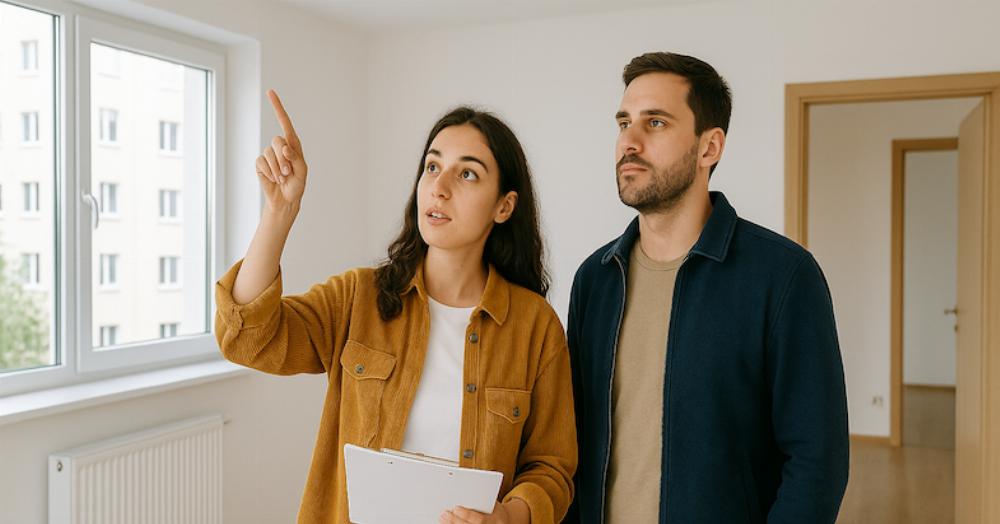
What to Check Before Renting a Property
Understand the Total Cost
Before anything else, get a clear picture of how much the property will cost you each month—and beyond.
Ask for a full breakdown that includes:
- Monthly rent
- Deposit amount and how it will be protected
- Council tax band
- Utility bills (water, gas, electricity)
- Broadband and TV licence
- Any service charges (common in flats)
Factor in moving costs and the cost of furnishing the property if it’s unfurnished. A property might seem affordable at first glance, but these extras can add up quickly.
Research the Local Area
Location is just as important when renting as it is when buying. Before you commit to a tenancy, spend time in the local area—ideally at different times of day and week.
Ask yourself:
- Is the area well connected by public transport?
- Are there shops, gyms, parks, or other amenities nearby?
- What are the neighbours like?
- Does the area feel safe and well-lit at night?
Online forums and neighbourhood apps can also be helpful for getting a sense of the community and any known issues in the area.
Check the Condition of the Property
When viewing the property, look beyond the surface appearance. A place that’s been tidied up for a viewing might still have hidden problems.
Here’s what to look out for:
- Signs of damp, mould, or water damage
- Condition of walls, ceilings, and flooring
- Working radiators and heating system
- Double glazing and window seals
- Locks on windows and doors
- Functioning smoke alarms and carbon monoxide detectors
Check that all appliances (oven, washing machine, fridge) are working and in good condition. Run taps to test water pressure and check that the toilet flushes properly.
It’s also worth taking note of any damage—scratches, stains, broken fittings—so you can raise them with the letting agent before moving in.
Understand the Tenancy Agreement
The tenancy agreement is a legal document, so it’s important to read it carefully before signing. If anything is unclear, ask for clarification.
Check for the following:
- Length of the tenancy (most are 6 or 12 months initially)
- Notice period required to leave
- Who is responsible for repairs and maintenance
- Rules around pets, smoking, and subletting
- Inventory of furniture and fittings (if furnished)
- Grounds for withholding your deposit at the end
Make sure you understand your rights and responsibilities as a tenant. For example, you’ll likely be responsible for minor upkeep, like replacing light bulbs, but not for fixing structural issues.
Deposit Protection and Fees
In England, your landlord is legally required to protect your deposit in a government-approved scheme (like TDS, DPS, or MyDeposits) and provide confirmation within 30 days of receiving it.
They must also give you:
- A copy of the tenancy agreement
- The most recent “How to Rent” guide from the government
- An up-to-date gas safety certificate
- An Energy Performance Certificate (EPC)
Be wary of any upfront or hidden fees—most tenancy fees were banned under the Tenant Fees Act 2019, but charges for things like lost keys or missed rent payments still apply. Ask for transparency from the start.
Safety and Compliance
Landlords are legally required to make sure a property is safe and fit to live in. Check that:
- Gas appliances have been inspected in the last 12 months
- There is a working smoke alarm on every floor
- A carbon monoxide alarm is installed if there’s a solid fuel-burning appliance
- Electrical installations are safe and checked at least every 5 years
An Energy Performance Certificate (EPC) should also be made available. Properties rated below band E should not be let out unless exempt.
If anything seems unsafe or the documentation is missing, raise it with the letting agent or landlord before moving in.
Inventory and Photographic Evidence
When you move in, make sure you’re provided with a full inventory that lists every item in the property (if furnished) and the condition of the walls, floors, appliances, and fittings.
Take dated photographs of each room and any existing damage, and share these with your landlord or letting agent. This will help protect your deposit when you move out and ensure you’re not held responsible for pre-existing issues.
Ask About the Landlord or Letting Agent
The professionalism and responsiveness of the landlord or letting agent can make a big difference to your renting experience.
Consider asking:
- Who will manage the property: the landlord directly or an agent?
- How are repairs reported and how quickly are they addressed?
- What are the reviews or reputation of the letting agency?
A good agent or landlord will be transparent, communicative, and happy to answer your questions.
Final Thoughts
Renting a property is a big commitment, and rushing in without doing your homework can lead to regret down the line. By checking the property thoroughly, understanding the costs and legal paperwork, and asking the right questions, you’ll be in a much stronger position to enjoy your new home with confidence.
Taking the time now to be thorough can prevent problems later—and make your renting experience a positive one from day one.